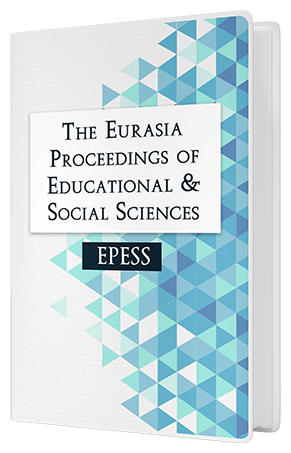Staff Motivation for Green Behaviour and Environmental Initiatives
DOI:
https://doi.org/10.55549/epess.1179692Keywords:
Staff motivation, Green behaviour, Environmental initiativesAbstract
The main purpose of the study is to assess the use of motivational tools to green behaviour of employees and environmental initiatives in Ukrainian organizations. The results of the survey confirmed the working hypotheses: the practice of motivating staff to green behaviour and environmental initiatives in Ukraine has not become widespread. The research showed that a half of the organizations encourage environmental initiatives. At the same time, owners and managers of organizations prefer intangible rewards of encouraging employees to green behaviour and ecological initiatives. Although intangible rewards are more common in encouraging employees to participate in environmental activities than tangible ones, the practice of using them is still mediocre. The paper focuses on the necessity of paying more attention to both tangible and intangible incentives of encouraging employees to environmental activities by owners and managers. The study provides the important recommendations for encouraging employees to engage in green activities and environmental initiatives: increasing wages, paying bonuses, providing social benefits as tangible rewards; the publication of staff contributions to sustainable development, public recognition and awards for environmental efforts, green activities, encouraging the receipt of certificates and awards as intangible rewards; promotion of employees who have competencies in green management, involving employees in goal setting and the development of indicators of the environmental activities results, green corporate culture and green leadership as efficient corporate factors.Downloads
Published
Issue
Section
License
Copyright (c) 2022 The Eurasia Proceedings of Educational and Social Sciences

This work is licensed under a Creative Commons Attribution-NonCommercial-ShareAlike 4.0 International License.
The articles may be used for research, teaching, and private study purposes. Any substantial or systematic reproduction, redistribution, reselling, loan, sub-licensing, systematic supply, or distribution in any form to anyone is expressly forbidden. Authors alone are responsible for the contents of their articles. The journal owns the copyright of the articles. The publisher shall not be liable for any loss, actions, claims, proceedings, demand, or costs or damages whatsoever or howsoever caused arising directly or indirectly in connection with or arising out of the use of the research material. All authors are requested to disclose any actual or potential conflict of interest including any financial, personal or other relationships with other people or organizations regarding the submitted work.




